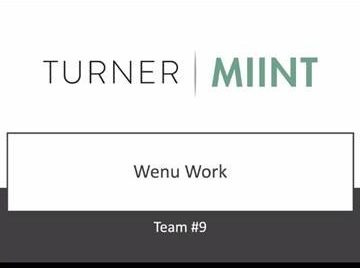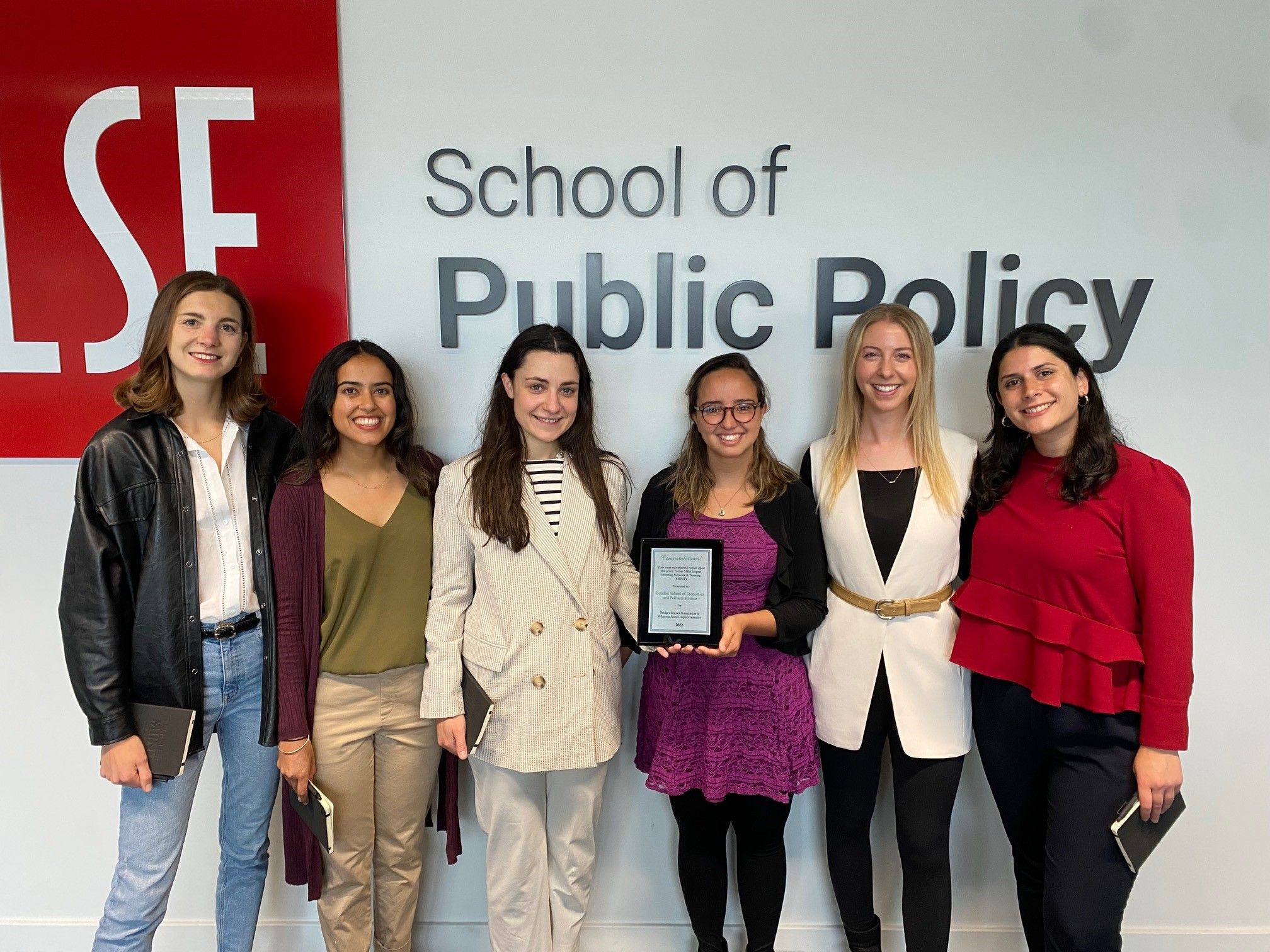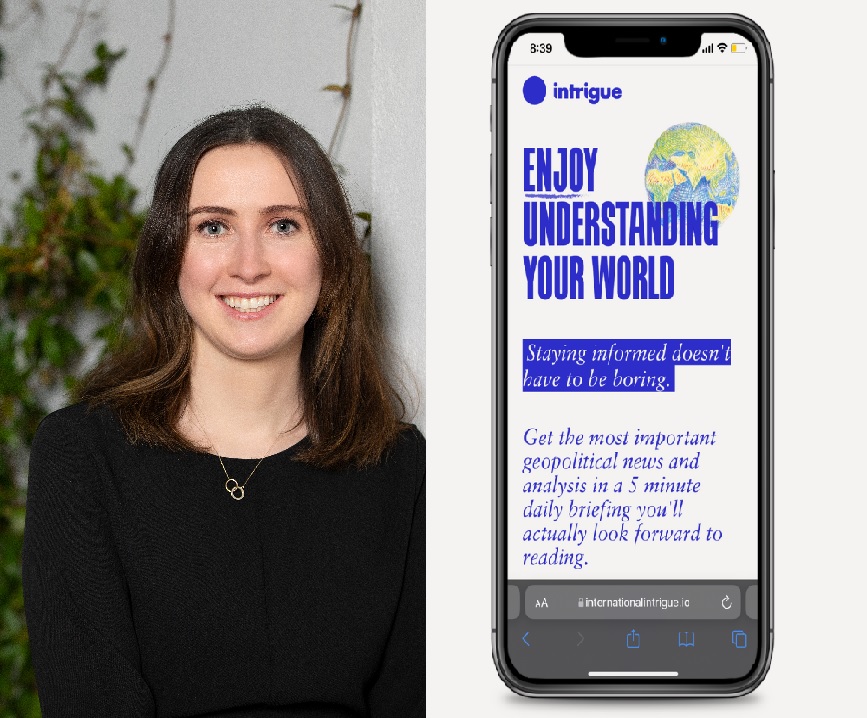Anya Nelson reflects on how she moved from a traditional career in Finance to Impact Investing after studying the Master of Public Administration at LSE
Like many Economics graduates, I began my career in finance, starting as a summer intern at an investment bank in London. From the first day when I was handed a cup of coffee at midnight and asked to stay a few more hours “just in case they needed me”, I knew that this wasn’t the career for me. But somehow, I found myself accepting the graduate role and then spent the next five years of my life working in equity capital markets.
I felt purposeless and uncomfortable in banking. My sisters work in medicine and literally save people’s lives. I, on the other hand, was really good at excel formulae and formatting presentations… I couldn’t reconcile how either of these occupations correlated to their respective salaries.
Frustrated with feeling like I was just making rich people richer, after five years I decided to do the very millennial thing and quit my job in search of something “better”. However, I had no idea what I actually wanted to do. I toyed around with vague dreams of setting up a yoga school (quickly gave up after seeing the cost of commercial rent in London), volunteering with an orphanage charity (did this for two months but I definitely wasn’t cut out for it), and becoming a human rights barrister (swiftly got rejected by Lincoln’s Inn). I was also cripplingly unconfident in my ability to do anything other than IPOs, rights issues, and investor roadshows.
So, I decided to reset the clock and buy myself some time by going back to university to study the Master of Public Administration at LSE. I was primarily interested in the practical nature of the course but what I didn’t appreciate until I started was how varied it was. I took classes in climate change, political science, behavioural science, social impact, public management – things that have an impact on me every day, but about which I previously knew nothing. The joy of going back to university when you’re already several years into your career is in learning something new, in challenging your rapidly cementing views, and in opening your eyes to what else is out there.
A different way of working in Finance
You might think it ironic and perhaps even a little hypocritical, to hear that I returned to a career in finance. But this time it was different.
While at LSE, I was part of the LSE’s MIINT team. I took Dr Jonathan Roberts’s “New Institutions of Public Policy” class, and through that spent a lot of time at the Marshall Institute. The Marshall Institute’s motto of “private action for public benefit” resonated deeply with me. Finally, I found a way to connect my two selves – my experience in finance with my desire to do something good for others. MIINT was my first experience of impact investing and it was amazing. I met inspirational entrepreneurs, highly accomplished LSE alumni and learned so much from Stephan Chambers and his team.
It also opened the door to my future career. I briefly worked for an impact VC, Mustard Seed, and then, during the summer of my MPA, as an intern for Pollination – a specialist climate change advisory and investment firm. At the time, I had to take what I thought was a significant step backwards – downgrading from Vice President to intern in just twelve months! But finally, I was doing something I was truly passionate about and interested in.
Pollination went on to form a joint venture with HSBC Asset Management to create Climate Asset Management, where I am now an Investment Manager. At Climate Asset Management we have the ambition to become the world’s largest asset management company dedicated to natural capital. Our mission is to develop and deliver investment solutions that accelerate the transition to a net zero, nature and climate-resilient future. These nature-based solutions aim to deliver both social impact by providing sustainable livelihoods for indigenous people and local communities in developing countries, alongside environmental impact by protecting and restoring vital biodiversity. For our investors, the potential benefits include securing high-quality, high-impact carbon credits from these projects, which can be offset against any unavoidable carbon emissions.
My day job still consists of a lot of excel formulae and PowerPoint formatting – but it doesn’t bother me so much now, as I feel driven by our purpose and our potential for impact.
I know it doesn’t seem that far a stretch to go from investment banking to asset management, but for me it really was. I honestly don’t think I would have got my job if I hadn’t gone back to university, made the connections I did and realised what other opportunities are out there. And for people who don’t have a finance background, there are still many vital roles within impact investing – we need scientists, geologists, entrepreneurs, advocates, designers, marketing and PR people, lawyers, and diplomats. We need creative thinking and unique perspectives if we’re going to even get close to solving the world’s most difficult problems.
Impact investing is a hugely diverse and rapidly growing sector. Opportunities can be found in accelerator programmes, growth equity, charities, philanthropy, foundations, family offices, corporates, institutional investors, investment banks, asset managers, multinational development banks, all the way up to the World Bank!
The philosopher Peter Singer tells us that the most good you can do is to have a high paying, high power job, as your income will be more valuable than any attempt at charity. I used to really believe this, coupling my banking salary with a Giving What You Can pledge. But if everyone strives for a high income, who will be there to do the good? If we can take the intelligence, creativity, enthusiasm, hard work, and determination of LSE students, investment bankers, or any tenacious person, and channel that energy into something good, the world would be an infinitely better place.
If you are reading this and want to talk more about impact investing, please reach out to me on LinkedIn. I would be more than happy to talk to you.





